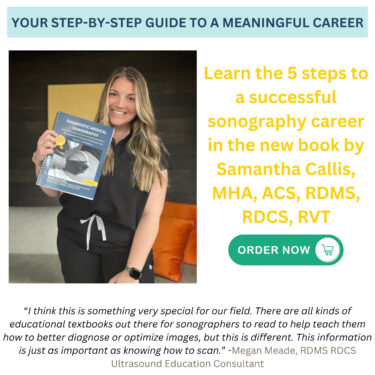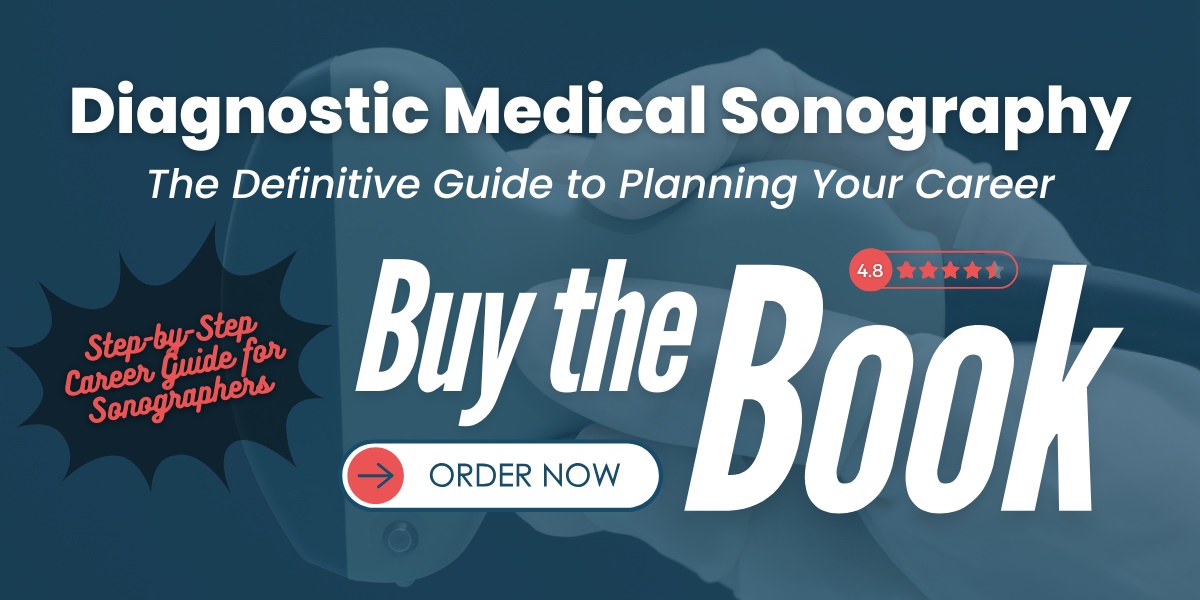Find Oregon’s Sonography Programs in 2025
Diagnostic medical sonographers play an important role in diagnosing and treating the diseases and conditions of their patients. Working closely with physicians, sonographers use special equipment that uses sound waves to produce images of the inside of the body, which are then interpreted by those physicians in order to prevent or treat disease. The images can also be used to monitor a pregnancy.
Sonography as a career is seeing momentum because of the potential for a good salary, positive job outlook, and relatively short education and training period. We will go into each of these topics later, as well as connect you with accredited ultrasound technician schools where you can receive the education you need to become a sonographer.
How to Become a Sonographer in Oregon
- Find an accredited ultrasound program. Research the accreditation of the program that you are interested in. If possible, select one that has been accredited by the Commission on Accreditation of Allied Health Education Programs (CAAHEP). This will ensure that the education you receive will meet or exceed industry standards.
- Get your degree. You will need at least an Associate of Science degree in medical sonography to apply for work. Some schools offer programs at the Bachelor’s degree level, or a Certificate for those who already hold a degree in allied health.
- Receive your credential and get licensed. Sit for the exam offered by the American Registry of Diagnostic Medical Sonography to receive your RDMS credential. Oregon requires that you also be licensed by the Oregon Board of Medical Imaging.

CAAHEP Accredited Diagnostic Sonography Programs
 The most well known organization that accredits sonography programs is the Commission on Accreditation of Allied Health Education Programs (CAAHEP). A school becomes accredited by CAAHEP once it has met their DMS Accreditation Standards and Guidelines. The school must also pass a series of program reviews, including a self-study review and a site visit. This makes sure that the students are receiving quality education that prepares them to enter the healthcare workforce.
The most well known organization that accredits sonography programs is the Commission on Accreditation of Allied Health Education Programs (CAAHEP). A school becomes accredited by CAAHEP once it has met their DMS Accreditation Standards and Guidelines. The school must also pass a series of program reviews, including a self-study review and a site visit. This makes sure that the students are receiving quality education that prepares them to enter the healthcare workforce.
The successful completion of an accredited Oregon DMS program is the fastest and most straightforward way that students can become eligible for the ARDMS Sonography Principles & Instrumentation (SPI) exam, as well as an exam in a specific area of study. You need to pass both of these tests in order to receive a professional license in sonography.
If you’re currently enrolled in or have been accepted to a CAAHEP accredited program, you’re also eligible to apply for the UltrasoundSchoolsInfo $1,000 scholarship. Click here to learn more.
Accredited Sonography Schools in Oregon in 2025
There is only one CAAHEP accredited school in Oregon that offers a degree or certificate in diagnostic medical sonography as of November 2024:
| Institution Name | Programs Offered | Prerequisites | How to Apply |
|---|---|---|---|
| Oregon Institute of Technology 3201 Campus Drive Klamath Falls, OR 97601 |
Bachelor’s of Science in General, Vascular, or Cardiac Sonography. Online BS offered to ARDMS registered sonographers wishing to advance their education.
The program’s Instagram page can be found @oregontechvascular |
There is a Pre-Medical Imaging Technology program at OIT that must be completed prior to application. | Application and supporting documentation can be found here |

Get Real Advice From Sonography Students, Professionals, and Professors
Visit our student resource center for articles from some of the top sonographers around the country. Whether you’re just starting out or looking to move up the career ladder, our experts can help.
Ultrasound Tech Certification Requirements in Oregon
The Oregon Board of Medical Imaging has declared that “you MUST ALWAYS have an active Medical Imaging License or Limited Permit issued by the Oregon Board of Medical Imaging (OBMI) to legally perform any type of Medical Imaging in any modality” (OBMI). Some general qualifications include being over 18 years old, possessing a certificate granted by an approved by the board, or meeting the requirements set forth by the ORS-688.495.
Click here to see the full list of requirements, and click here for more resources.
The American Registry for Diagnostic Medical Sonography (ARDMS) is one of the credentialing organizations recognized by the OBMI, and it’s also the most highly regarded sonography licensing body. In order to become eligible, you first have to meet their prerequisites. After that, you can take the exam at one of the three testing locations in Oregon:
- 805 SW Broadway #420, Portland, OR 97205
- 10700 SW Beaverton Hillsdale Hwy #595, Beaverton, OR 97005
- 3560 Excel Dr # 105, Medford, OR 97504
Additional Certification Information
Certification overview
About the ARDMS
How Much do Ultrasound Techs Earn in Oregon?
Sonographers practicing in Oregon make a mean annual salary of $104,260, (BLS 2023), making it the 4th highest paying state in the nation. In addition, ultrasound techs at the top of their field in the 90th percentile made an average wage of $127,720, and those in the bottom 10th percentile earned up to about $82,000 per year. Conditions in your particular area may vary. O*Net predicts that jobs for sonographers working in Oregon will increase by 22% by 2030.
The salary sonographers earn depends on a number of factors, including type of employer, level of education and experience, and geographic location. For example, outpatient care centers often pay the most, while larger imaging centers and hospitals typically offer competitive benefit programs on top of a base salary. Additionally, possessing an Associate’s Degree is required to become an entry level sonographer, while earning a Bachelor’s Degree can qualify you for higher paying job positions.
Sonography Student Scholarships and Awards
Below are just a few of the scholarships available to those who qualify in Oregon:
Ultrasound Schools Info
Award: $1,000
Eligibility: Aspiring sonographer currently enrolled in/accepted to a CAAHEP accredited DMS program.
How to Apply:
Ultrasound Schools Info
Attn: Scholarship Committee
PO Box 3026
Bellingham, WA 98227
scholarship@ultrasoundschoolsinfo.com
ASRT Foundation Scholarships
Award: Varies
Eligibility: A collection of scholarships available to ASRT members. Eligibility may vary.
How to Apply:
ASRT Foundation
15000 Central Ave. SE
Albuquerque, NM 87123-3909 USA
800-444-2778
foundation@asrt.org
Horatio Alger Association Career and Technical Scholarships
Award: Up to $2,500
Eligibility: Awarded to students who have overcome adversity and are pursuing a career or technical degree at an accredited non-profit institution.
How to Apply: Complete the online application.
SDMS Foundation Sonography Student Scholarship Program
Award: $2,500
Eligibility: Sonography student who has been accepted or is currently enrolled in a CAAHEP accredited diagnostic medical sonography or cardiovascular technology program.
How to Apply: Contact the SDMS Foundation at
214-473-8057 or scholarship@sdmsfoundation.org
Ultrasound Technician Schools in Portland

Growth in Portland’s healthcare industry is coming at a faster rate than anywhere else in the country, according to a July, 2019 article by the Portland Business Journal. In a city where a large percentage of workers have college degrees, it’s important to make sure you have the education you need to be a competitive candidate in the marketplace. There are several programs to choose from in the PDX area whether you’re pursuing a degree in sonography or in allied health.
Get started on a career as a sonographer and become a part of the booming healthcare industry by attending a school or program in the Portland area.
Frequently asked questions
What does an ultrasound technician in Oregon do?
Sonographers do much more than just image internal organs. They also work closely with other members of the healthcare team and patients, and evaluate the images they capture. Learn more on our ultrasound technician career overview page. Get a complete job description, as well as first-hand accounts of what it’s like to be a sonographer.
How do I get started as a medical sonographer in Oregon?
We’ll walk you through all of the steps, starting when you’re still in high school or before you’ve started a formal post-education program, all the way through finding a job and advancing in your career. Get Started Now.
How long do I have to go to school?
Most degree programs are completed within two years, which will allow you to earn an Associate’s Degree, though program lengths may vary depending on particular program requirements. You can also go to school longer and receive a Bachelor’s or Master’s Degree, which will allow you to advance your career and increase your salary.
How do I know if sonography is right for me?
In order to be successful in the field, you’ll need more than just technical knowledge. Click here to find out about the qualities that make a great sonographer.
What other jobs can I get in healthcare?
There are many careers available within the healthcare industry other than diagnostic sonography, and we’ll introduce you to many of them here.


